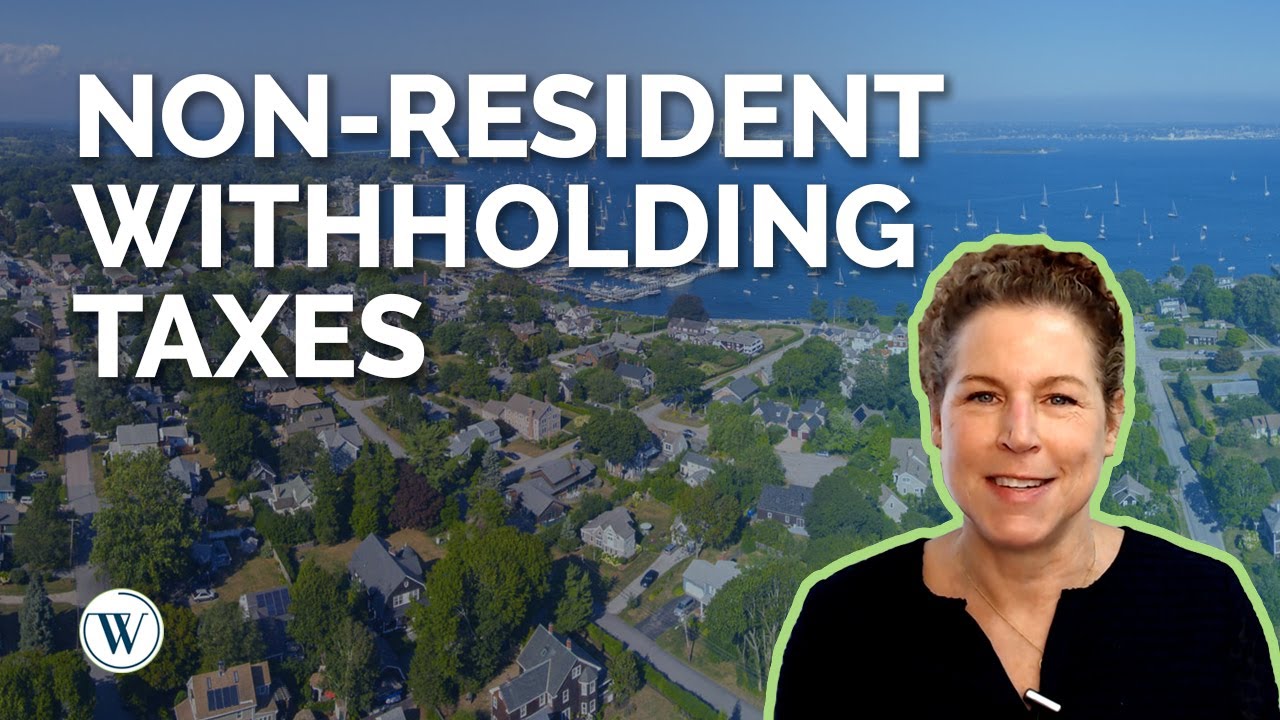Introduction: The Need for Improving Rhode Island’s Property Tax Environment
Rhode Island, like many other states, faces the challenge of creating a favorable property tax environment that benefits homeowners and supports economic growth. Property taxes play a significant role in funding local governments and public services, but the current system in Rhode Island has been a source of concern for many residents. This article aims to explore the need for improving Rhode Island’s property tax environment and the potential benefits that can be achieved through reform.
Understanding Rhode Island’s Current Property Tax System
Rhode Island’s property tax system is primarily based on the value of real estate properties. The state allows local governments to determine their own tax rates, resulting in significant variations across different municipalities. Property assessments are conducted periodically to determine the value of each property, and taxes are then calculated based on these assessments.
Challenges Faced by Rhode Island Homeowners due to Property Taxes
Rhode Island homeowners often face challenges due to the burden of property taxes. The current system, with varying tax rates, can lead to inconsistencies and inequities. This places a financial strain on homeowners, particularly those living in areas with higher tax rates. The lack of transparency and predictability in the assessment process also adds to the challenges faced by homeowners.
Analyzing the Impact of Property Taxes on Rhode Island’s Economy
Property taxes can have a significant impact on Rhode Island’s economy. High property tax rates can deter potential homeowners and businesses from investing in the state. This can lead to a decrease in property values, reduced economic growth, and a decrease in job opportunities. Additionally, the burden of property taxes can limit individuals’ disposable income, affecting their ability to contribute to the local economy.
Comparative Analysis: Rhode Island vs Other States’ Property Tax Environments
When comparing Rhode Island’s property tax environment to other states, it becomes evident that improvements are necessary. Rhode Island has one of the highest property tax burdens in the nation, with homeowners paying a larger share of their income towards property taxes compared to many other states. This puts the state at a disadvantage in attracting new residents and businesses.
Potential Solutions to Enhance Rhode Island’s Property Tax Environment
To enhance Rhode Island’s property tax environment, several potential solutions can be considered. One approach is to implement property tax relief measures, such as providing tax exemptions or credits for low-income homeowners or senior citizens. Another solution is to reassess the property tax system to ensure fairness and predictability. This could involve establishing clear guidelines for property assessments and tax rate calculations.
The Role of Local Governments in Improving Property Tax Policies
Local governments play a crucial role in improving property tax policies in Rhode Island. They have the power to adjust tax rates, implement exemptions, and establish regulations regarding property assessments. By engaging in open dialogues with residents and stakeholders, local governments can gain insights into the challenges homeowners face and work towards implementing effective solutions.
Examining Successful Property Tax Reforms from Other States
Rhode Island can learn from successful property tax reforms implemented in other states. For example, some states have adopted circuit breaker programs that limit the percentage of income that homeowners have to pay towards property taxes. Others have implemented caps on property tax increases to provide stability and predictability for homeowners. Studying these reforms and their outcomes can help guide Rhode Island’s efforts to improve its property tax environment.
Potential Benefits of an Improved Property Tax Environment in Rhode Island
An improved property tax environment in Rhode Island could yield significant benefits. It would attract new homeowners and businesses, stimulating economic growth and increasing property values. Additionally, a fair and predictable property tax system would alleviate the financial burden on homeowners, allowing them to invest more in their properties and contribute to the local economy. This, in turn, could lead to an increase in property tax revenues for local governments.
Addressing Concerns: Potential Drawbacks of Property Tax Reforms
While property tax reforms can bring about positive change, it is important to address potential drawbacks. One concern is the potential loss of revenue for local governments, which heavily rely on property taxes to fund public services. Careful planning and consideration should be given to ensure that any reform measures are balanced and sustainable, avoiding any adverse effects on essential services.
Engaging Stakeholders: Strategies for Developing an Effective Tax Reform Plan
Developing an effective property tax reform plan requires engaging stakeholders and fostering collaboration. This can be achieved through public forums, surveys, and consultations with experts in tax policy and economics. By involving homeowners, businesses, and local government officials in the decision-making process, a comprehensive and inclusive reform plan can be developed.
Conclusion: The Path Towards a Better Property Tax Environment in Rhode Island
Improving Rhode Island’s property tax environment is crucial for the state’s economic growth and the well-being of its residents. By addressing the challenges faced by homeowners, analyzing the impact on the economy, and exploring successful reforms from other states, Rhode Island can develop a comprehensive plan to enhance its property tax system. With careful consideration, stakeholder engagement, and a focus on fairness and predictability, Rhode Island has the potential to create a property tax environment that benefits all its residents and supports sustainable economic development.





